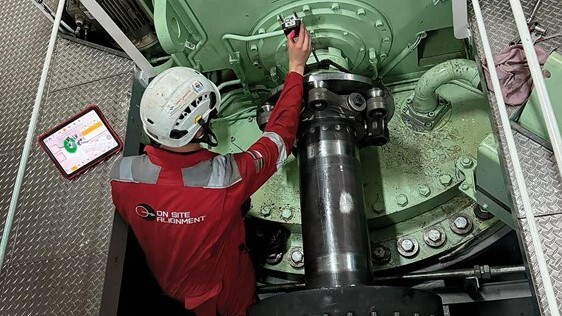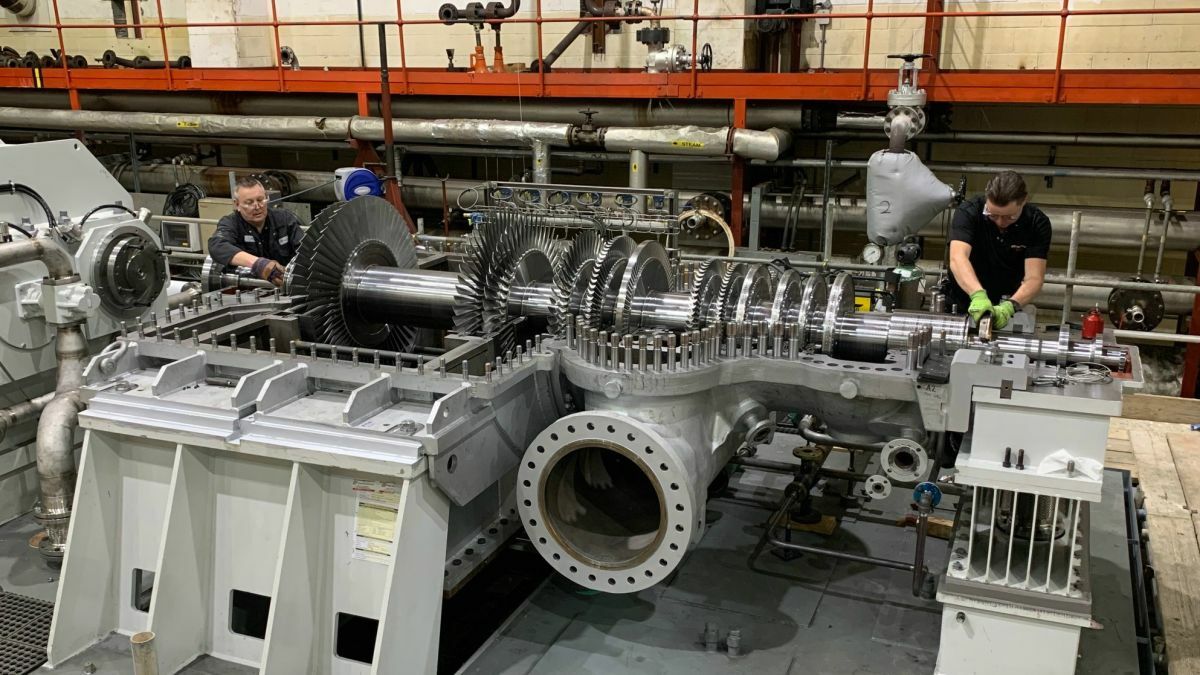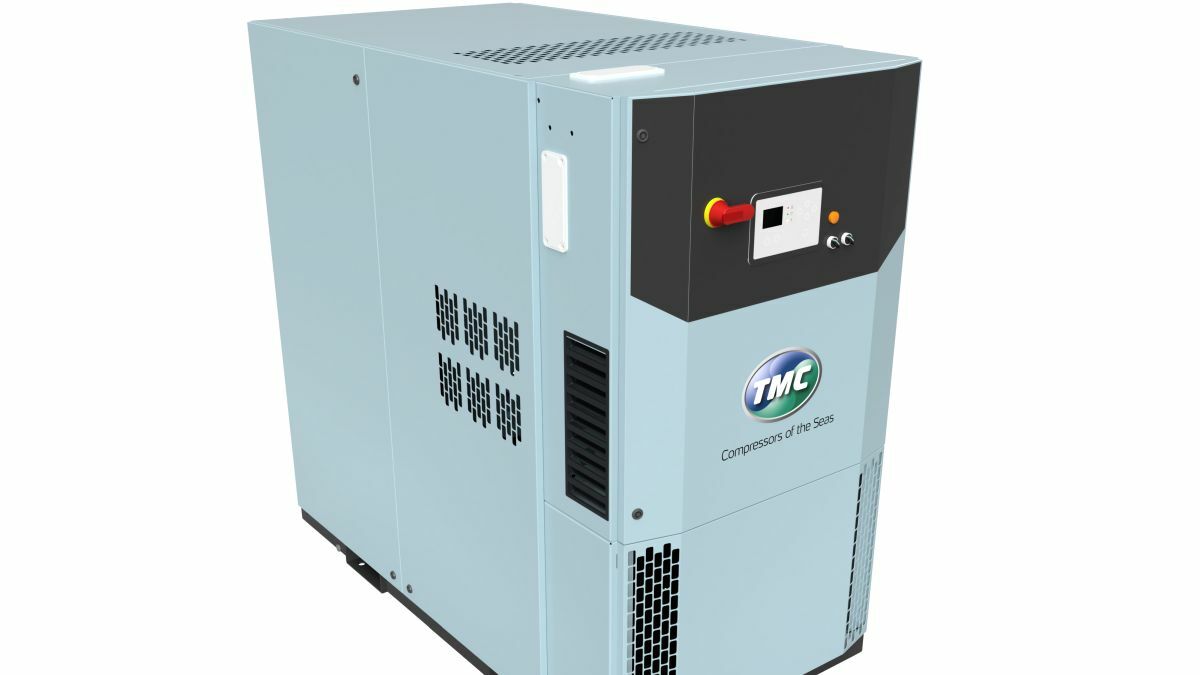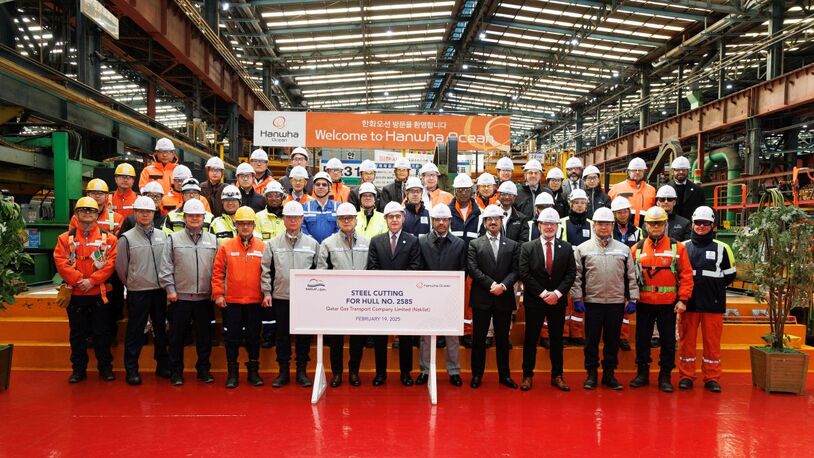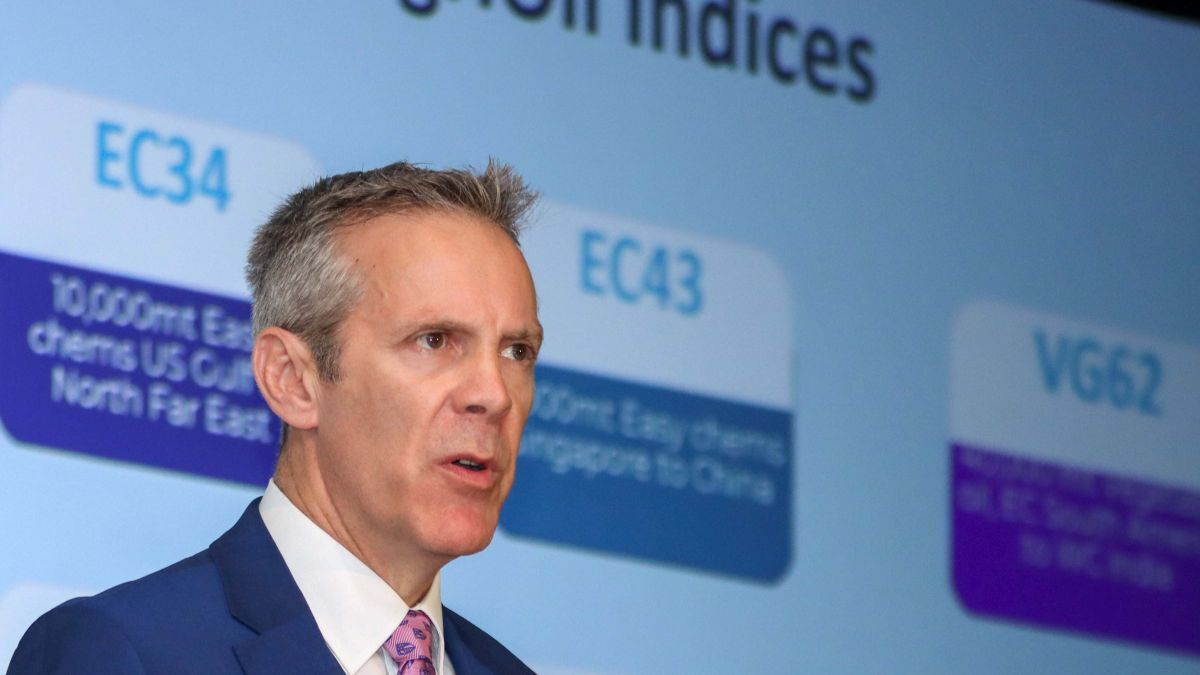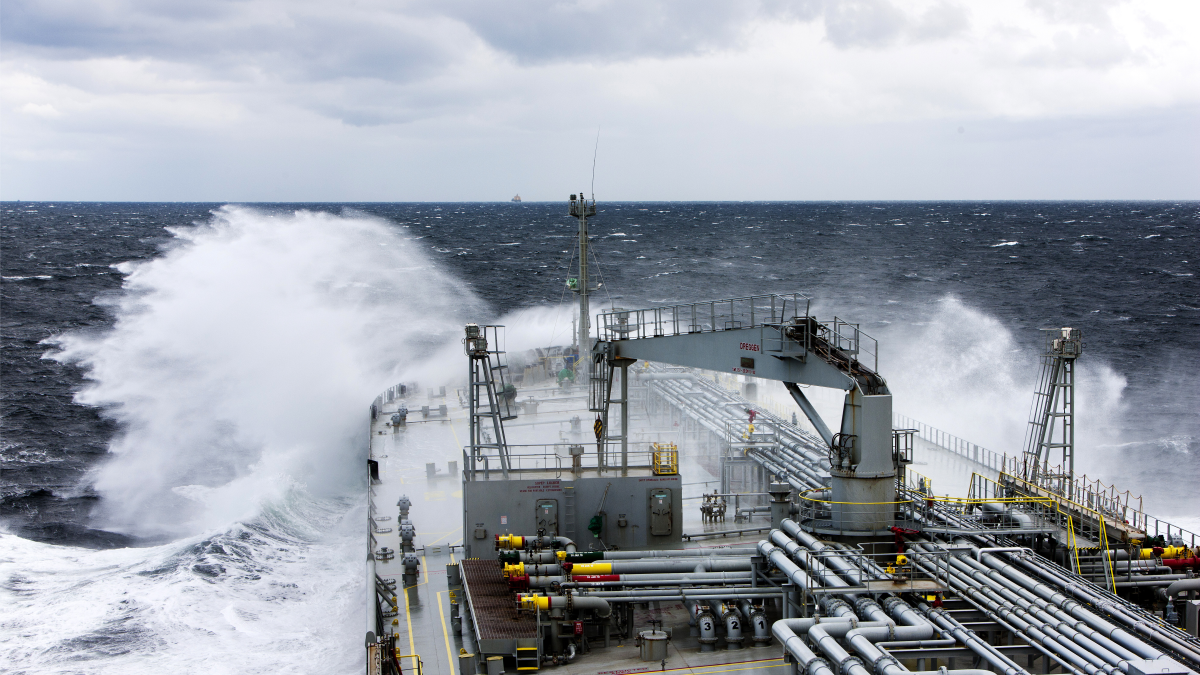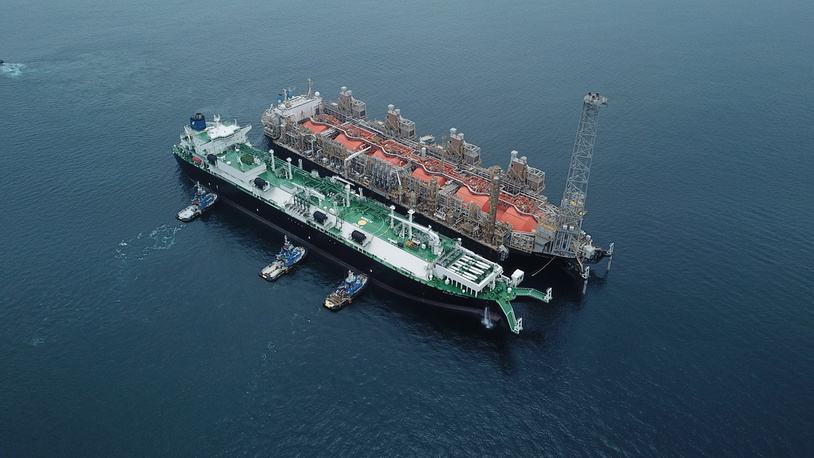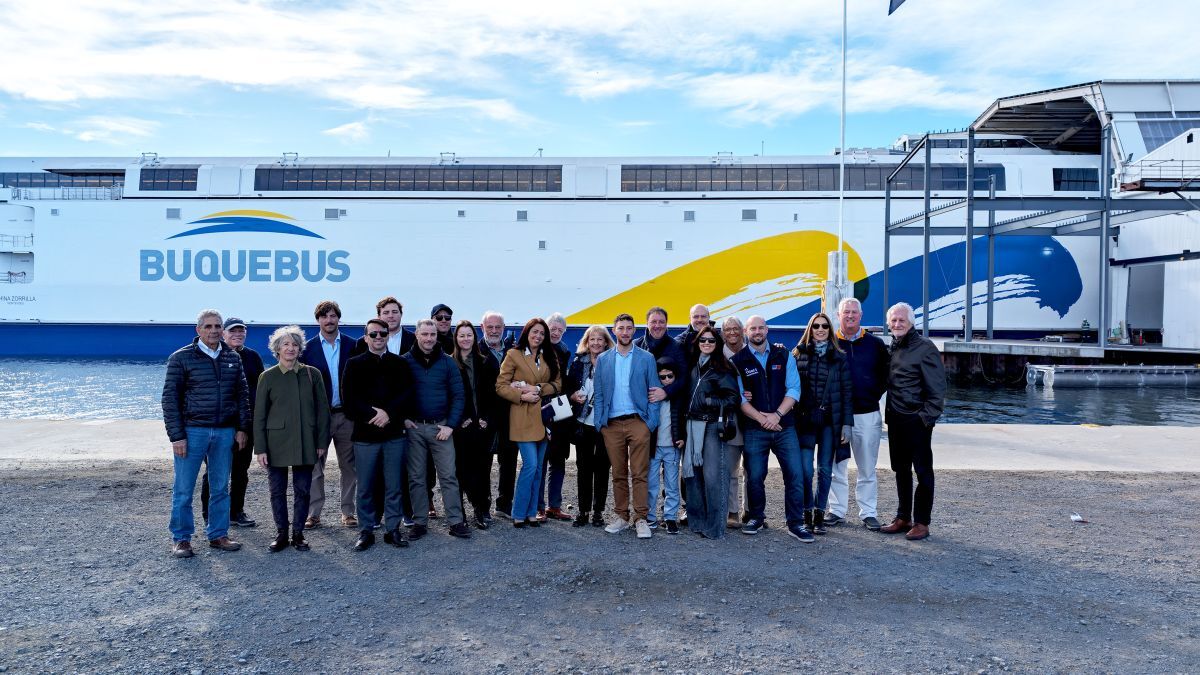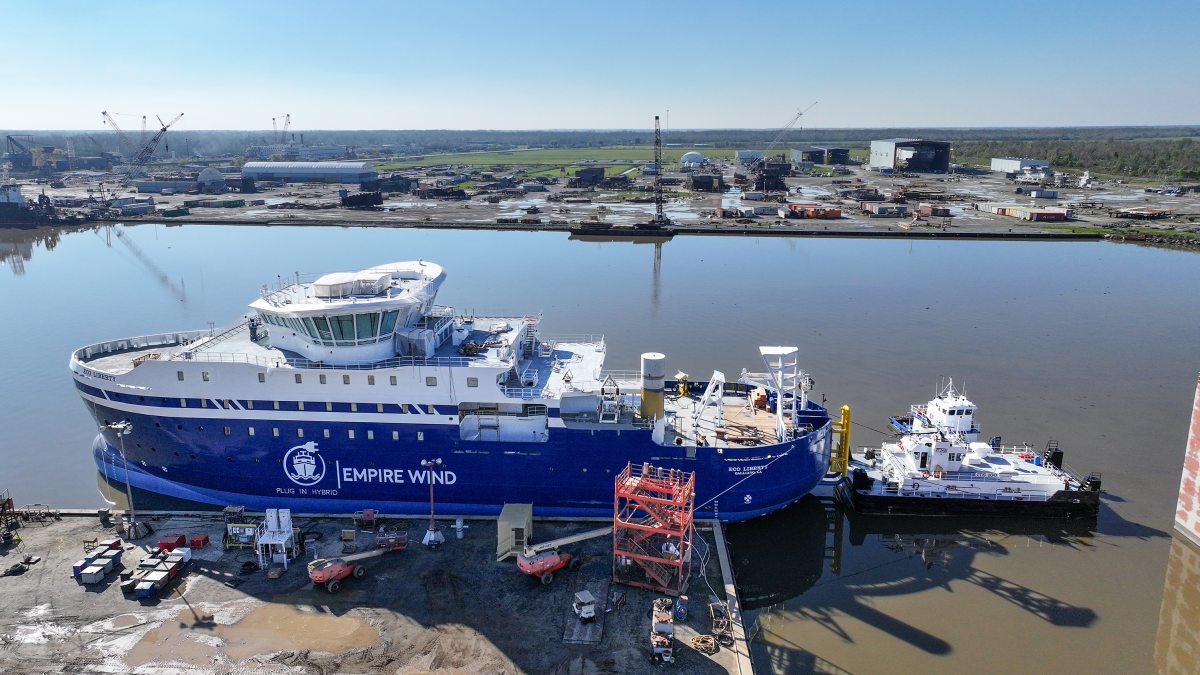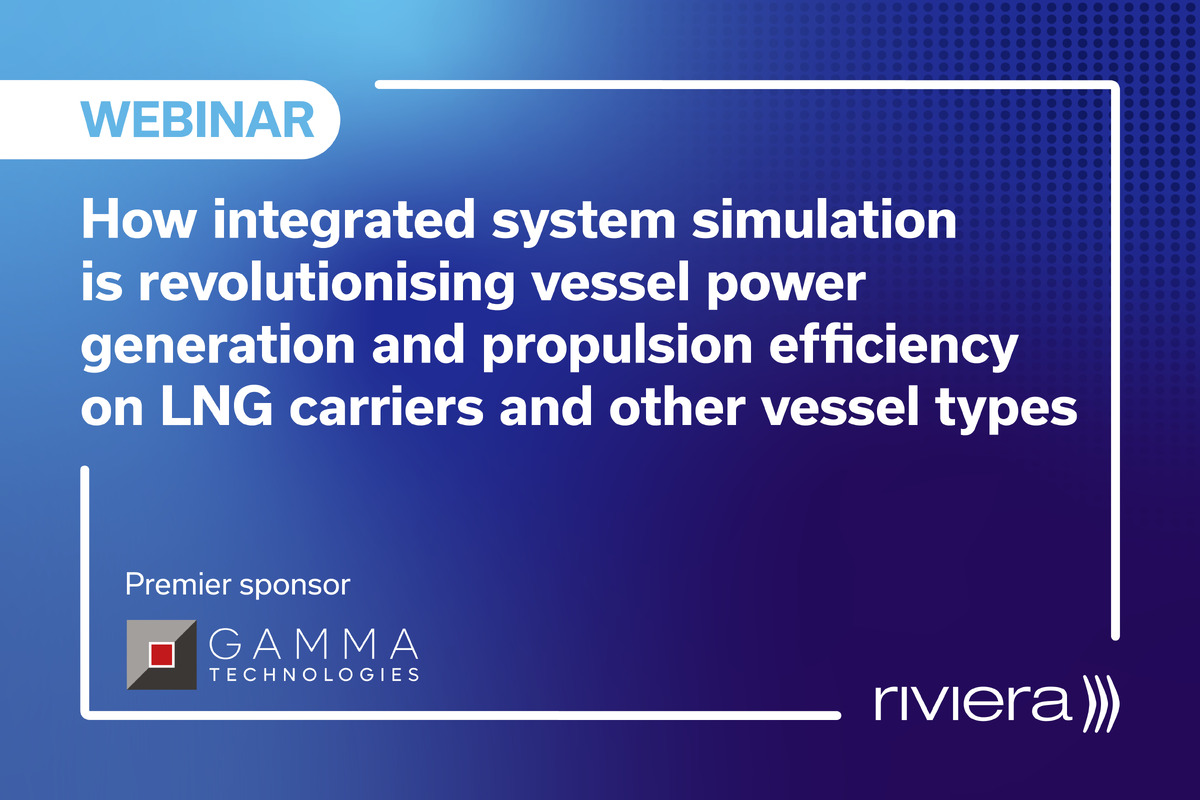Business Sectors
Events
Contents
Why the latest pump technology is key to effective LNG carrier conversions
A new global supply chain is driving the rebirth of a 42-year-old, Moss-type LNG carrier into a modern, floating liquefaction plant
Engineering and conversion work on the US$1.3Bn conversion of the 125,000-m3 LNG carrier Gimi to a floating LNG (FLNG) vessel is well underway at Singapore shipbuilder Keppel Offshore & Marine, with contracts tendered for the supply of a broad range of equipment and services.
As of Q3 2019, Golar LNG Ltd reported two of five scheduled drydocks on Gimi had been completed by Keppel Offshore & Marine (Keppel O&M). Golar LNG Ltd has 80 and Keppel 1,500 personnel working on the project daily.
Golar LNG has a 70% interest in FLNG owner Gimi MS Corporation, with Singapore’s First FLNG Holdings Pte, holding the remaining 30% stake. First FLNG Holdings Pte is an indirect subsidiary of Singapore’s Keppel Corporation Limited, held through Keppel Capital Holdings Pte.
Norwegian liquid handling and pump manufacturer PG Flow Solutions is supplying four high-flow seawater pumps, each with a capacity of 5,500 m3 of water per hour.
With Gimi FLNG set to operate under a 20-year contract for BP’s Greater Tortue Ahmeyim development offshore West Africa, the reliability, energy efficiency and opex of the vessel’s equipment and systems are critical to ensure the vessel’s availability and productivity. “These axial type propeller pumps represent a highly reliable technology that is popular in the maritime and oil and gas industries because of the low maintenance requirements,” says PG Flow Solutions research and development manager Kjetil Vatne.
Assembled at PG Flow Solutions’ facility in Sande, Norway, the pumps will be used to provide a continuous flow of seawater to cool down the steam condensers and liquefy the steam produced by the vessel’s steam turbines for power generation.
Gimi FLNG’s steam turbines are being built by UK-based steam turbine manufacturer Peter Brotherhood, part of Avingtrans plc. Under the contract, worth in excess of £10M (US$13M), Peter Brotherhood will deliver the 26-MW steam turbines in 2020. The contract also contains an option to provide a similar set of turbines for a yet to be confirmed, potential future vessel, reports Peter Brotherhood.
That vessel could well be the LNG carrier Gandria, which is owned by Golar LNG. Built as Hoegh Gandria by Germany’s Howaldtswerke Deutsche Werft and delivered to Norway’s Leif Hoegh & Co in 1977, Gandria is considered another potential candidate for FLNG vessel conversion by Golar LNG. Now registered under the Marshall Islands flag, Gandria has an overall length of 287.5 m, beam of 43.4 m, draught of 11.5 and capacity of 125,000 m3.
Peter Brotherhood supplied components for Golar LNG’s – and the world’s – first FLNG vessel conversion, Hilli Episeyo, which commenced production offshore Cameroon. Peter Brotherhood built two 33-MW extraction condensing steam turbines to provide process power for Hilli Episeyo FLNG.
As was the case in the Hilli Episeyo FLNG conversion, Keppel O&M is working closely with US-based Black & Veatch on the Gimi project. Black & Veatch is supplying its single-mixed refrigerant Prico liquefaction technology and global engineering and procurement capabilities, while Keppel O&M is providing the marine systems and all of the conversion-related construction services.
In October, Black & Veatch awarded an engineering, procurement and fabrication (EPF) contract to Norwegian oil and gas engineering group Kanfa AS to supply four heat recovery steam generator (HRSG) modules for Gimi FLNG. The HRSG modules will be part of a combined waste heat recovery/power plant that will recover heat to produce steam for process heat and power generation in the steam turbines. Compared to conventional solutions, says Kanfa, this combined power solution will be more efficient and reduce CO2 emissions.
Kanfa expects to deliver the four modules to Keppel O&M in Singapore in Q4 2020.
In 2017, Oslo-based compressor manufacturer TMC Compressors of the Seas (TMC) won a contract to deliver a similar Smart Air compressed air system to Golar LNG’s FLNG Hilli Episeyo.
TMC has now been awarded a contract to supply energy efficient compressed air systems to Golar LNG’s Gimi FLNG. TMC’s scope of work includes manufacturing and delivery of seven large Smart Air compressors.
“Our Smart Air compressor technology offers precise control of the compressor speed, which means that they can run more efficiently than traditional compressors,” says TMC director of sales and business development Hans Petter Tanum. “As a result, Smart Air compressors offer up to 50% reduction in energy consumption, with a similar reduction in CO2 emissions and operational costs,” says Mr Tanum.
“Golar LNG is dedicated to reducing both the environmental footprint and operating expenditure of the FLNG Gimi,” says Mr Tanum. “Our Smart Air compressors are specially designed for marine applications and [offer the] lowest possible energy consumption, making them a good match for the vessel’s strict requirements.”
Keppel Offshore & Marine expects the conversion to be completed in H1 2022. With the capability to produce 2.45 mta of LNG, Gimi FLNG will be moored at a nearshore hub located on the Mauritania and Senegal maritime border under a charter to BP that runs until Q4 2042.
Compressed air systems for X series LNGCs
In October, TMC secured a contract to supply an energy-efficient marine compressed air system and associated equipment for four LNG carriers under construction for Greece’s TMS Cardiff Gas.
“In almost all tenders we participate in, shipowners increasingly emphasise energy and fuel efficiency as well as the lifetime cost of the equipment,” says Mr Tanum.
TMS Cardiff Gas is constructing the four LNG carriers at South Korean shipbuilders Hyundai Heavy Industries (HHI) and Samsung Heavy Industries (SHI). Each vessel will have storage capacity of 174,000 m3, with GTT Mark III Flex membrane cargo containment technology and low-speed, dual-fuel X-DF main engines from WinGD.
Destined to start long-term charters with Shell once they are delivered, the four LNG carriers are part of TMS Cardiff Gas’ X carrier series of orders. Formed in 2011, TMS Cardiff Gas will grow to 16 LNG carriers.
TMC spokesman Endre Johansen tells LNG Shipping and Terminals: “TMC has conducted a lot of R&D work to generate higher capacity output of control and service air, but with lower energy consumption, service requirements and as a result, lower opex and harmful emissions to air.” Mr Johansen says TMC has sought inspiration from the automotive industry, which for several decades has made engines more compact while squeezing out more horsepower and reducing fuel consumption and associated CO2 emission levels: “For compressors between 150 and 235 kW, for example, TMC has in recent years increased capacity by up to 9.7%, while energy consumption has been reduced by up to 9.2%.” Adds Mr Johansen, “Simply put, more power for less cost.”
TMC’s scope of supply is to provide two control air compressors, one service air compressor and two nitrogen feed air compressors for each of the four vessels. For the LNG carriers being built by HHI, TMC will also supply two selective catalytic reduction (SCR) compressors. TMC’s contract value is undisclosed.
This is not the first contract TMC has been awarded by TMS Cardiff Gas. In June 2018, TMC won a contract to supply a marine compressed air system for three TMC Cardiff Gas LNG carriers being built by HHI.
New test facility supports cryogenic pump and expander line
US-based Elliott Group, a wholly owned subsidiary of Japan’s Ebara Corp, broke ground in December on a new US$60M cryogenic products test facility in Jeannette, Pennsylvania. When it opens in 2021, the test facility will help integrate the manufacture of custom-engineered cryogenic pumps and expanders into its product line. Elliott also manufactures compressors and steam turbines. Integration of the new products follows the completion of the Elliott Group’s merger with Ebara International Corp, Sparks, Nevada in April 2019. Ebara International’s cryogenic pumps and expanders under the Cryodynamics brand name are now manufactured at Elliott’s facility in Jeannette.
Compact in size and about a third of the weight of an external motor pump or expander, with an external generator, the Cryodynamics line of submerged motor pumps and expanders are well suited for installation on FLNG and floating storage and regasification (FSRU) vessels where space is at a premium, says the Elliott Group.
Cryodynamics ECC model pumps are used in high-pressure, send-out service on FSRUs, while retractable ECR model pumps can be employed to service the storage tanks on the vessels, and LX liquid expanders can be used on the FLNG topside module. Vessel-mounted ECC pumps and LX expanders incorporate additional lateral supports to reduce the loads on the suction or discharge vessel-mounting lugs. These supports are derived from shipboard cargo EC pumps. The pump is protected from lateral loads by a lower support rod. In-tank retractable pumps use a deep-seat style suction valve or a rigid retraction system to eliminate the possibility of the pump unseating from the valve seal surface during hull motion.
Nine Cryodynamics pumps and one expander were supplied for Shell’s Prelude FLNG, moored in 250 m of water in the Browse Basin, 475 km offshore of Western Australia. With a production capacity of 3.6 mta of LNG, Prelude FLNG shipped its first commissioning cargo to Asia in June 2019. The Prelude FLNG facility is operated by Shell in a joint venture with Inpex, which has a 17.5% interest, Kogas (10%) and OPIC (5%).
Pump partners
In December, TMC struck a co-operation agreement with Germany’s Sauer Compressors to work together to meet a broad range of air compressor requirements for offshore, marine and shipping companies. While the two companies will continue to operate separately, they believe their complementary product lines of marine and offshore compressors will allow them to offer the complete marine compressed air package that yards and shipowners often want, according to Sauer Compressors COO Harald Schulz.
TMC supplies screw compressors for marine and offshore use, while Sauer Compressors is a global supplier of piston compressors for the commercial shipping, offshore and navy segments. Most vessels require both screw and piston compressors to fulfil their on-board compressed air requirements.
TMC delivers screw compressors in the range from 1.5 to 20 bar pressure, while Sauer provides high-pressure piston compressors for pressures between 20 and 500 bar.
“TMC and Sauer will continue to offer our respective products on a stand-alone basis, but this agreement enables us to co-operate more closely and cost-effectively, which could be highly beneficial for both yards and shipowners,” says TMC chief executive Per Kjellin.
Related to this Story
Events
Maritime Environmental Protection Webinar Week
The illusion of safety: what we're getting wrong about crews, tech, and fatigue
Responsible Ship Recycling Forum 2025
© 2024 Riviera Maritime Media Ltd.

